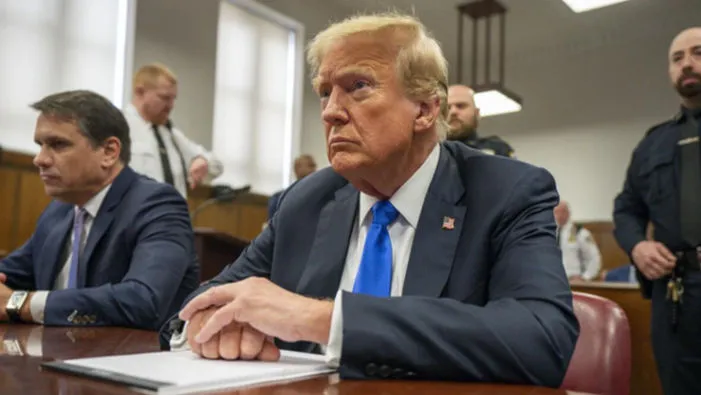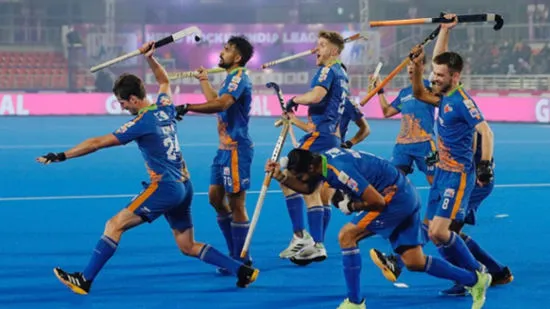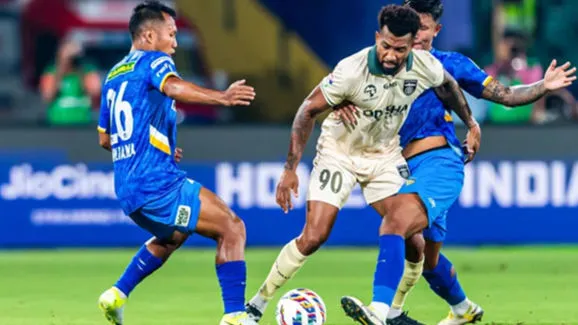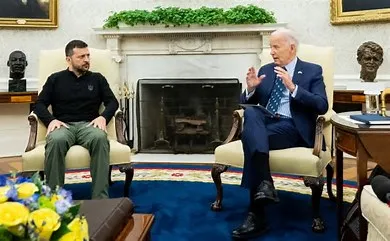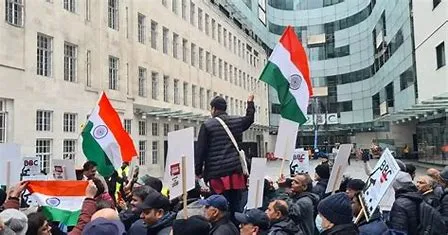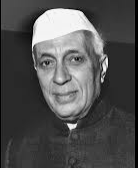 Long years ago, we made a tryst with destiny, and now the time comes when we shall redeem our pledge, not wholly or in full measure, but very substantially. At the stroke of the midnight hour, when the world sleeps, India will awake to life and freedom. A moment comes, which comes but rarely in history, when we step out from the old to the new, when an age ends, and when the soul of a nation, long suppressed, finds utterance. It is fitting that at this solemn moment we take the pledge of dedication to the service of India and her people and to the still larger cause of humanity.
Long years ago, we made a tryst with destiny, and now the time comes when we shall redeem our pledge, not wholly or in full measure, but very substantially. At the stroke of the midnight hour, when the world sleeps, India will awake to life and freedom. A moment comes, which comes but rarely in history, when we step out from the old to the new, when an age ends, and when the soul of a nation, long suppressed, finds utterance. It is fitting that at this solemn moment we take the pledge of dedication to the service of India and her people and to the still larger cause of humanity.
At the dawn of history India started on her unending quest, and trackless centuries are filled with her striving and the grandeur of her success and her failures. Through good and ill fortune alike she has never lost sight of that quest or forgotten the ideals which gave her strength. We end today a period of ill fortune and India discovers herself again. The achievement we celebrate today is but a step, an opening of opportunity, to the greater triumphs and achievements that await us. Are we brave enough and wise enough to grasp this opportunity and accept the challenge of the future?
Freedom and power bring responsibility. The responsibility rests upon this Assembly, a sovereign body representing the sovereign people of India. Before the birth of freedom we have endured all the pains of labour and our hearts are heavy with the memory of this sorrow. Some of those pains continue even now. Nevertheless, the past is over and it is the future that beckons to us now.
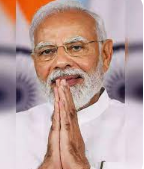 “A poor Hindu and a poor Muslim must ask themselves- do they want to fight each other or do they want to fight poverty? For India’s development, we have to fight poverty and not each other.” In the midst of live bombs, a clarion call for peace unity and empowering the poorest of the poor by Narendra Modi at Patna’s Hunkar Rally.
“A poor Hindu and a poor Muslim must ask themselves- do they want to fight each other or do they want to fight poverty? For India’s development, we have to fight poverty and not each other.” In the midst of live bombs, a clarion call for peace unity and empowering the poorest of the poor by Narendra Modi at Patna’s Hunkar Rally.
“It should be our dream that India can fill the stomach of the entire world!”
Narendra Modi on agriculture, farmer welfare, using greater technology and better irrigation facilities in agriculture at the Vibrant Gujarat Global Agriculture Summit.
“An India where truth alone triumphs, where the whole world is one single family, where serving the poor is like serving the Almighty!”
Narendra Modi’s historic speech at the BJP National Council Meet, Delhi where he shared his ‘Idea of India’ and how the 2014 Elections are about a ray of hope for a billion Indians.
“In our culture the position of women is supreme. In every sphere where women have got the opportunity, they are two steps ahead of men.”
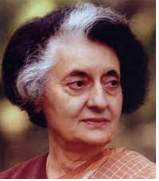 Meri khoon ki har boond Bharat ki ekta ko mazboot banayegi (Every drop of my blood will strengthen India’s unity),” the then Prime Minister had said, aware of a threat to her life following the army operation to flush out militants from the Golden Temple in Amritsar in June that year.
Meri khoon ki har boond Bharat ki ekta ko mazboot banayegi (Every drop of my blood will strengthen India’s unity),” the then Prime Minister had said, aware of a threat to her life following the army operation to flush out militants from the Golden Temple in Amritsar in June that year.
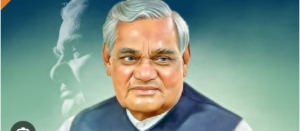 ‘Satta ka khel chalega’ (the game of power will go on). Governments will come and go. Parties will be made and unmade. This country should survive, its democracy should survive.” [Vajpayee in Lok Sabha when his government faced a trust vote in May 1996].
‘Satta ka khel chalega’ (the game of power will go on). Governments will come and go. Parties will be made and unmade. This country should survive, its democracy should survive.” [Vajpayee in Lok Sabha when his government faced a trust vote in May 1996].
The Pokhran-2 nuclear tests were conducted neither for self-glorification, nor for any display of machismo. But this has been our policy, and I think it is also the policy of the nation, that there should be minimum deterrence, which should also be credible. This is why we took the decision to conduct tests. [In Parliament on the 1998 nuclear tests]
You can change friends but not neighbours. [In Parliament in May 2003]
We in India are inheritors to a great civilisation whose life chant has been ‘Shanti’ – that is, Peace – and ‘Bhaichara’ – which means, Brotherhood. India has never been an aggressor nation, a coloniser or a hegemon in her long history. In modern times, we are alive to our responsibility to contribute to peace, friendship and cooperation both in our region and around the world. [31 January, 2004 – PM’s speech at inauguration of Global Convention on Peace and Non-violence].
The freedom of the press is an integral part of Indian democracy. It is protected by the Constitution. It is guarded in a more fundamental way by our democratic culture. This national culture not only respects freedom of thought and expression, but also has nurtured a diversity of viewpoints unmatched anywhere in the world.
Gun can solve no problem; brotherhood can. Issues can be resolved if we move forward guided by the three principles of Insaaniyat (humanism), Jamhooriyat (democracy) and Kashmiriyat (Kashmir’s age old legacy of amity). [April 23, 2003 – speaking on the issue of Jammu and Kashmir in Parliament].
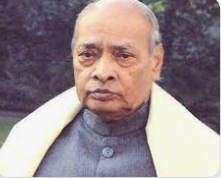 When I spoke to you last, I promised quick and bold measures to restore our sick economy to health. We have taken the first step to fulfill that promise. This is the beginning. A further set of far-reaching changes and reforms is on the way. For the last eighteen months, there has been paralysis on the economic front. The last two governments postponed taking vital decisions. The fiscal position was allowed to deteriorate. The balance-of-payment crisis became unmanageable. Nonresident Indians and foreign leaders became more and more reluctant to lend money to India. Consequently, India’s external reserves declined steeply, and we had no foreign exchange to import even such essential commodities as diesel, kerosene, edible oil, and fertiliser. The net result was that when we came to power, we found the financial position of the country in a terrible mess. Desperate maladies call for desperate remedies. And that is what we have done. And this is what we will continue to do.
When I spoke to you last, I promised quick and bold measures to restore our sick economy to health. We have taken the first step to fulfill that promise. This is the beginning. A further set of far-reaching changes and reforms is on the way. For the last eighteen months, there has been paralysis on the economic front. The last two governments postponed taking vital decisions. The fiscal position was allowed to deteriorate. The balance-of-payment crisis became unmanageable. Nonresident Indians and foreign leaders became more and more reluctant to lend money to India. Consequently, India’s external reserves declined steeply, and we had no foreign exchange to import even such essential commodities as diesel, kerosene, edible oil, and fertiliser. The net result was that when we came to power, we found the financial position of the country in a terrible mess. Desperate maladies call for desperate remedies. And that is what we have done. And this is what we will continue to do.
Exchange Rate Adjustment : The Reserve Bank changed the exchange rate of rupee. This was done so that we can export more. More garments, more leather products, more gems and jewellery, more agricultural products made in India will be sold abroad. This will not only earn us Foreign Exchange but also create new employment at home.
And why do we need to earn foreign exchange so badly? Not to import luxury items but to buy commodities like kerosene and diesel, fertilisers, edible oil, and steel. We produce these commodities, but what we produce is not enough. We are stepping up our production, but for some time, we have to import.








